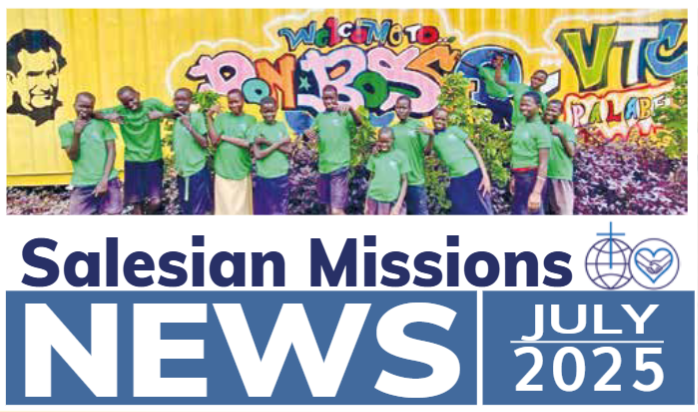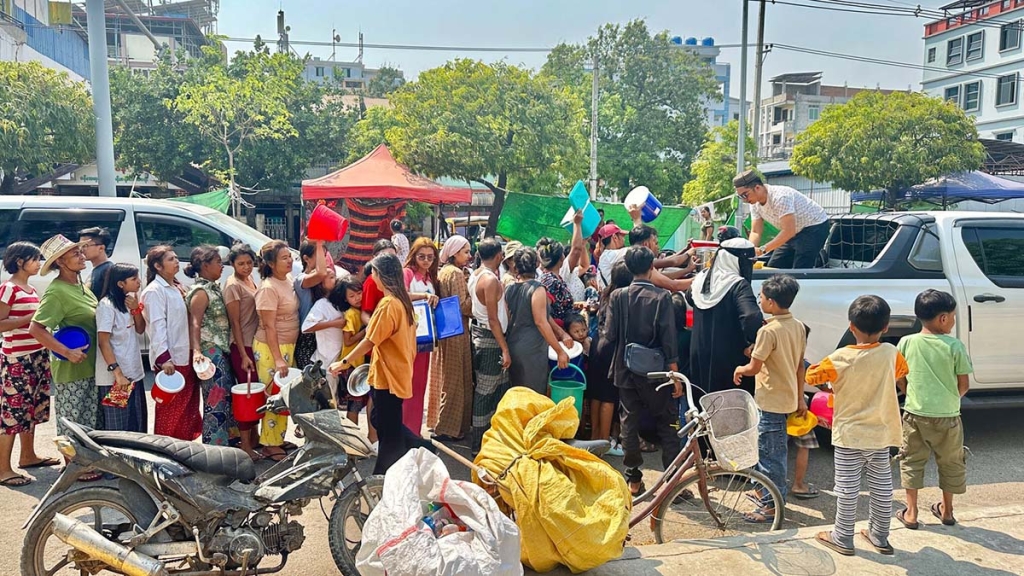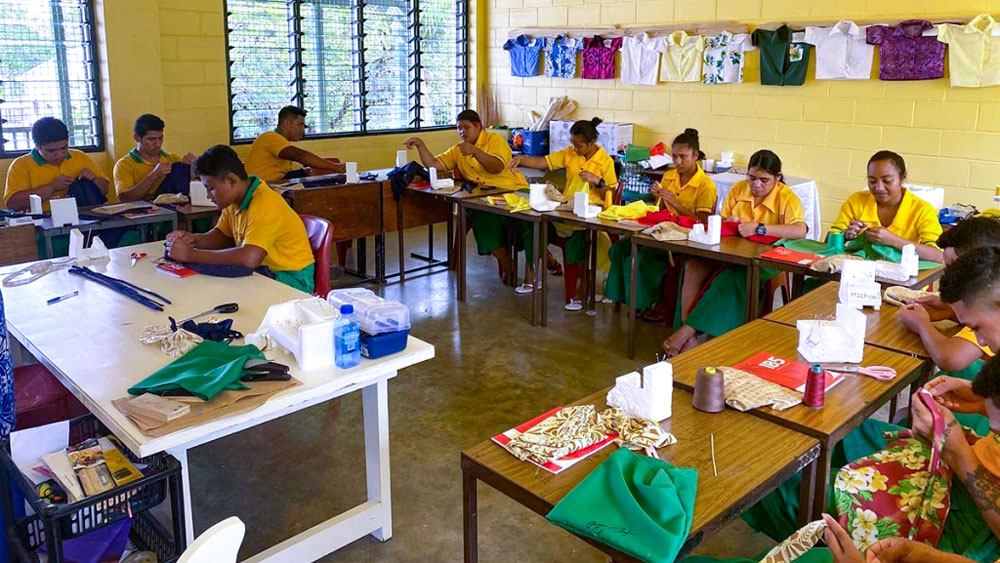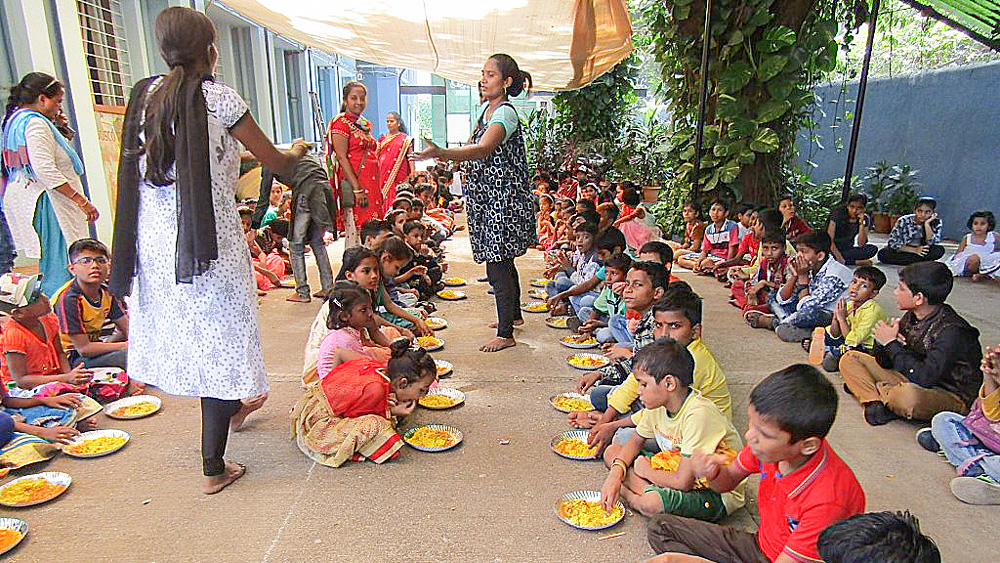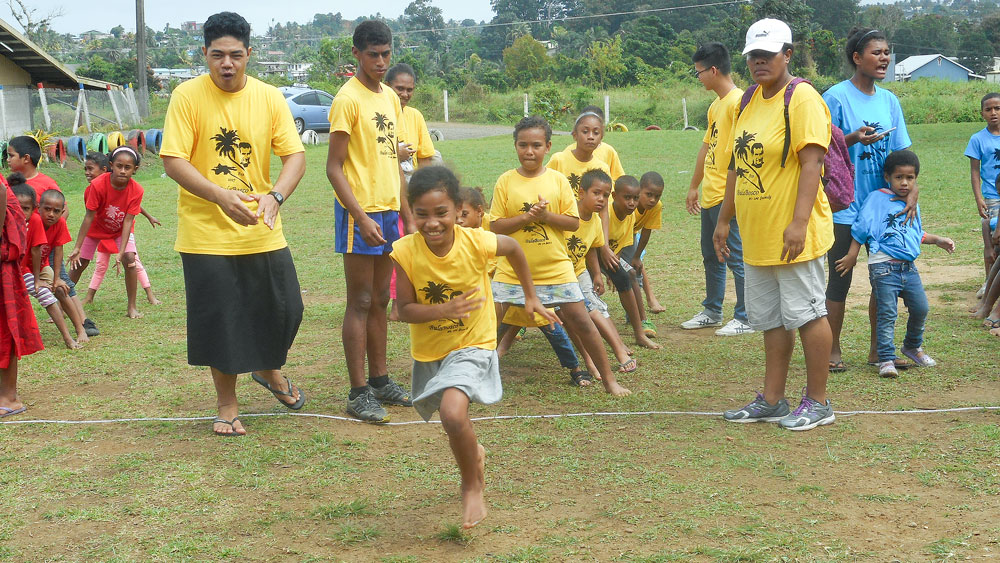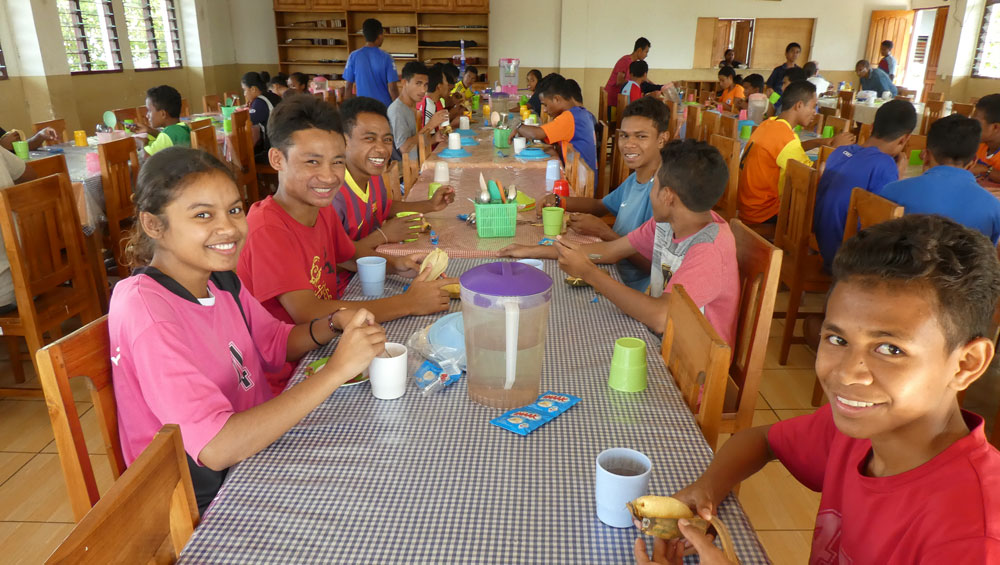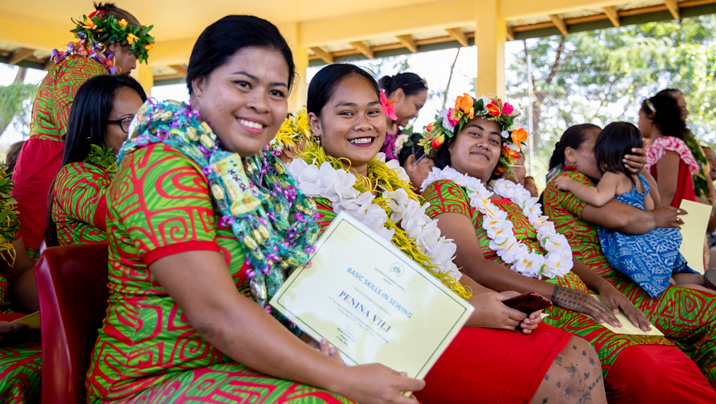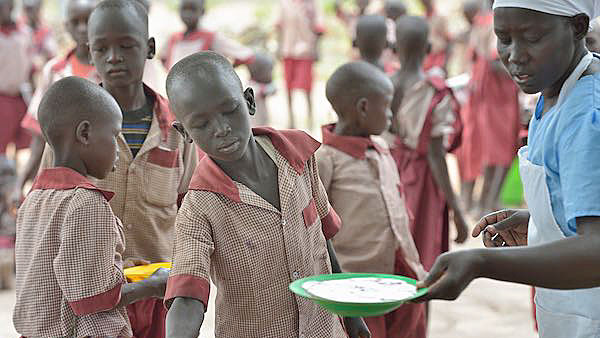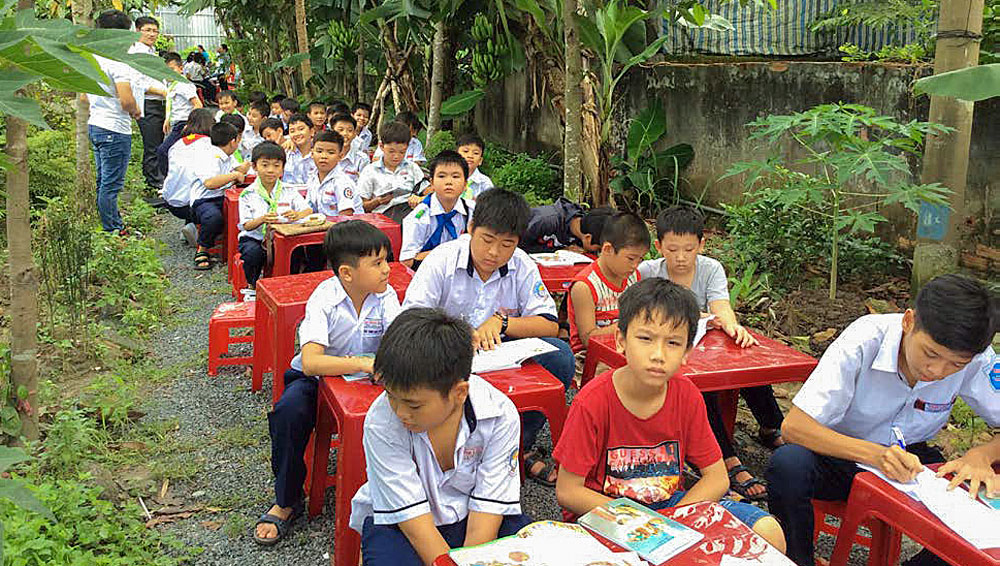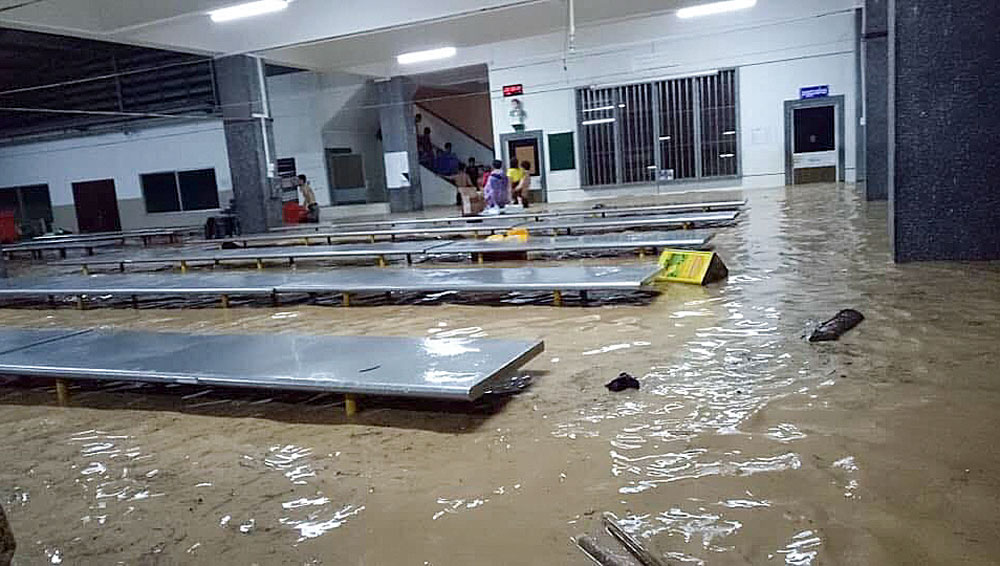The Don Bosco Training Centre in Tetere provides an alternative path to dropouts from around the surrounding nine provinces. Seven indigenous teachers offer a professional approach to education in literacy and numeracy. They also conduct special catch-up lessons to those who fall behind.
The Training Centre also offers classes in agricultural and farming for a range of crops (rice, root, vegetable) and livestock (pigs, cows, chickens, fish), basic carpentry skills are also offered. Rotary generously supplied the centre with 90 chickens and training in poultry care, the eggs are now a sustainable source of protein for the students. The 4-hectare rice plantation has remained a constant source of income for the school producing 8 tonnes of rice annually.
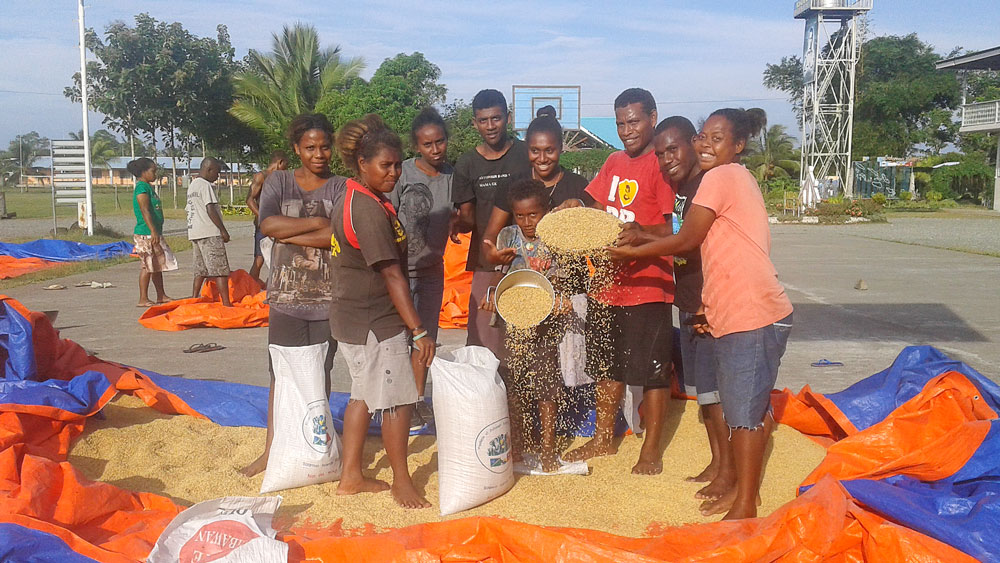
The 4-hectare rice plantation is producing 8 tonnes of rice every year.
Teachers offer various youth groups with variable outlets for their energies and creative flair through a wide range of activities, such as sports, music, liturgy, cooking and arts. This serves to further educate the children, equip them with life and social skills so they may become self-reliant, contributing members of society.
Graduates of the school have found success with companies throughout the Solomon Islands. On the job training placements and full-time employment have played a vital role in this, with all participants receiving glowing feedback from their managers.
The Don Bosco Training Centre and Ministry of Agriculture are looking to establish a partnership with a nearby cocoa and tree plantations for student placements, as well as with the Solomon Islands National University to increase the levels of training that the students and teachers receive.
The Don Bosco Technical Institute in Henderson offers a wide range of training programs, in the fields of automotive, electrical, carpentry, machine fitting, IT, welding, hospitality and tourism. In 2018, a new course in business and office administration was introduced. Enrolments are up to 400 students, with 24 staff members. The Institute also places an emphasis on establishing the correct attitudes and work habits within their students. A wide range of scholarships are offered to the poorest students, equipping them with books, stationary and in some cases clothing and food.
Recently an industrial-strength photocopy machine for the office was provided which allows for the mass publishing of communication and educative materials. Now, the institute is looking to commence production on new classrooms, to help facilitate the demand of such a successful learning environment.
An emphasis on environmentally friendly initiatives, most notably the installation of solar panels to help cut electricity usage and costs, as well as providing training for the correct management of waste at the Ranadi Landfill Site has been implemented.

